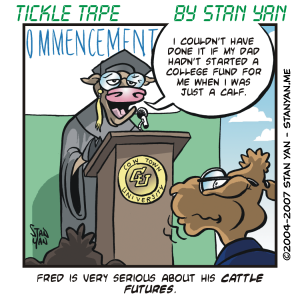Traders often walk a tightrope between overconfidence and a lack of confidence. On the one hand, the overconfident trader may take unnecessary risks and make trades on impulse. But at the other extreme, the trader with a lack of confidence may have trouble persisting in the face of adversity. Holding positive expectations can be motivating. As Norman Vincent Peale pointed out, “Things become better when you expect the best instead of the worst.” In other words, if you think negatively, you are bound to be pessimistic, underestimate what you can do, and just not try hard enough to reach an objective.
But poet Alexander Pope noted in the 1700s, “Blessed is he who expects nothing, for he shall never be disappointed.” In other words, don’t get your hopes up; otherwise, you may be disappointed when you don’t meet your expectations. How does one resolve these seemingly contradictory viewpoints? In the trading realm, novice traders learn rather quickly that high expectations are rarely confirmed. Trading is a challenge and many learn to realistically expect to lose money more often than make it. Perhaps a middle ground is most apt for trading: Be optimistic enough to press on in the face of adversity, but realistic enough to realize that one should expect to overcome seemingly insurmountable obstacles to trade profitably and consistently.
One resolution to this quandary is to match expectations with skill level. Positive expectations are only problematic when one doesn’t have the skill level to meet the positive expectations. For example, if one is a seasoned trader with a solid track record, holding positive expectations can be motivating. Because a seasoned trader can meet optimistic estimates, he or she will try hard to meet the objectives and achieve them. It will work out for the best. A negative expectation is not realistic for the seasoned trader. A pessimistic view may cause the seasoned trader to unnecessarily question his or her skills, and may compel him or her to give up more easily, when, in fact, because he or she has the requisite skills, persisting would likely lead to success.
In contrast, the novice trader with an overly positive estimate is bound to experience a shocking disappointment. Because he or she does not yet have the skills to meet the overly optimistic expectation, he or she will likely fail, and because he or she was expecting easy success, he or she may be especially disappointed. Also, by holding an overly positive expectation, he or she may fail to take proper risk precautions or prepare properly for the trade. For the novice trader, a more realistic estimate, and somewhat pessimistic stance, is better. One will not be discouraged as easily when losses start to mount, but will anticipate adversity, and will not be fazed by it when it is encountered.
In the end, the more realistic expectations you hold, the better. If you are a seasoned trader, being a little on the optimistic side is warranted. With persistence and hard work, you are likely to realize profits. Novice traders, in contrast, might be better off showing a more sceptical stance. A novice trader should expect initial failure, yet be optimistic enough to believe that if sufficient hard work and practise is devoted to trading, success, in the long run, will be achieved. Whatever your skill level, the more your expectations of success match your track record and requisite skills, the more you can control your emotions and trade with a peak performance mindset.


